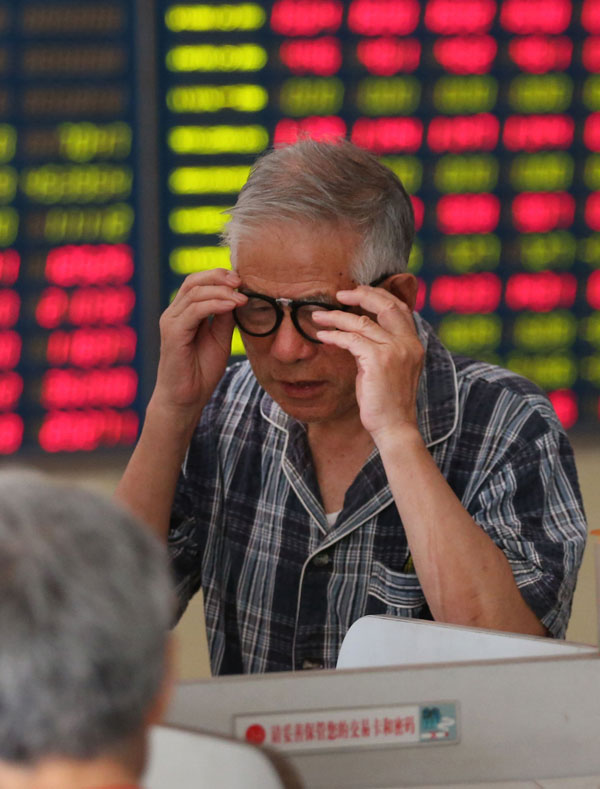Shares edge higher as selloff seen as excessive
Stocks staged an afternoon recovery to edge higher amid speculation that a selloff that sent the benchmark equity gauge to its steepest loss in six weeks was excessive. Automobile and utility companies led gains.
The Shanghai Composite Index rose 0.1 percent at the close, after dropping as much as 0.8 percent. SAIC Motor Corp climbed for a third day to pace carmakers higher, while China Yangtze Power Co rose to its highest level this year.
The advance comes after stocks sank on Wednesday on concerns that regulators would restrict investments in equities. The China Banking Regulatory Commission is said to be planning a crackdown on the $3.5 trillion wealth management product market. The initial draft states that cash from "mass market" wealth products can only be invested in money or bond markets, and not in domestically listed shares, said a person with direct knowledge of the matter.
"The panic selling on Wednesday was overdone," Ronald Wan, chief executive at Partners Capital International Ltd in Hong Kong. "Curbs on wealth management products have been there for a while, even though further tightening will slow fund flows into stocks."
The Shanghai equity gauge rose to 2,994.32 points. The ChiNext Index of smaller companies fell 0.7 percent to a one-month low, after sliding as much as 2.1 percent during the session.
The securities regulator has already restricted the use of leverage by structured asset management plans, and reportedly warned brokerages to do better due-diligence when raising money for companies. The Shenzhen Stock Exchange will demand improved disclosure and limit speculation on stocks in popular industries such as virtual reality and artificial intelligence, according to a statement in the Securities Daily.
Authorities including the CBRC have noticed that bursting bubbles in the property, securities investment and commodity sectors may worsen bad loans and even affect the stability of the banking system, the 21st Century Business Herald reported, citing a person close to regulators.
China has been tightening rules on WMPs since late 2014. The products are a key reason behind the growth in the shadow-banking industry, which Moody's Investors Service estimates is worth more than 50 trillion yuan, and have been used by some financial institutions as a way to extend funds to risky borrowers and evade capital requirements. WMPs are sold by banks but often stay off their balance sheets.
|
 An investor checks stock prices at a securities brokerage in Nantong,Jiangsu province. Xu Congjun / For China Daily |


















